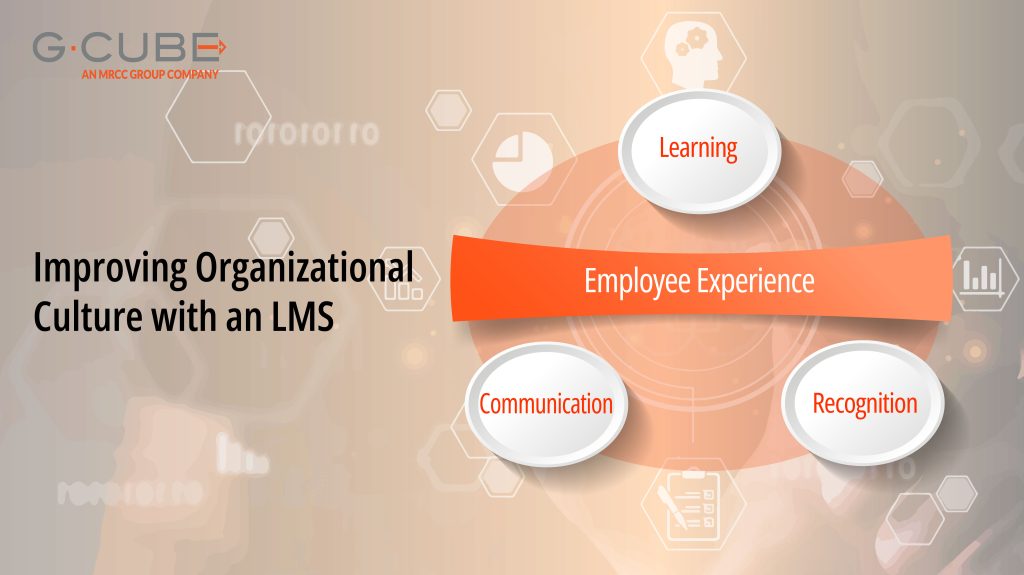The pace at which organizations had to shift to remote working or adapt to the regulatory guidelines to remain functional during the pandemic, was an unprecedented experience for most. The businesses that could adapt to the change flourished while the ones who could not struggled to even remain afloat. The gamechanger here was the organization’s culture and 69% of organizations that adapted amid the pandemic agreed that culture offers a competitive advantage (The PwC Global Culture Survey 2021).
66% of survey respondents in the PwC report, said culture is more important than strategy or operations. They also agreed that top cultural priorities should include recruitment and retention, digitization, health and safety and collaboration. At the end of the day, employee experience is at the center of an organization’s culture which drives growth as individual development is intrinsically related to the overall growth of an organization.
The three things that needs to be an integral part an organization’s culture to drive positive transformation are – learning, communication, and recognition. These qualitative practices may seem immeasurable but the impact it has on your employee’s experience can lead up to 4X revenue growth (Forbes). With the Great Resignation and digital revolution, we are witnessing at the moment developing a strong culture through positive employee experience is an imperative which can be successfully driven with the right strategy and a modern learning management system (LMS).
A Culture of Continuous Learning
Microsoft is one of the biggest and most successful corporations in the world that promotes ‘continuous learning’ as one of their core values. Instead of just hiring the top performers, Microsoft focuses on training their employees to become better at their jobs. The culture of learning not only helps your employees upskill but creates an environment of healthy competition driving people to tap their own potential contributing to your organization’s growth. According to LinkedIn Workplace Learning Report 2021, 2/3rd employees want their companies to take employee learning more seriously with concerted effort.
An LMS is the perfect platform to consolidate all your learning efforts and provide your employees to stay engaged in the productive habit of learning. Right from delivering mandatory trainings related to product or compliance, to recommending courses for upskilling related to a job profile, the learning management system provides the necessary infrastructure for the digital-first workforce of our days. You can read more about how to engage with the millennial workforce here.
Active and Passive Communication
Communication is one of the most basic yet important factors to build a community which has a common culture, positively impacting the huge machinery called an organization. Communication is essential to drive the values of your organization across the structural levels and geographies. Right from when a new hire is getting onboarded, to their journey through the rapid changes like that during the pandemic, having proper channels of communication has defined employee experiences for companies. Organizations which could communicate with their workforce in a structured way resulted in employees feeling more confident and in control of their work when shifting to remote work. It helped in developing resilience through consistent and coordinated communication where the organization made their employees feel heard.
The learning management system with its social learning feature is a great example of how organizations can create a digital environment suitable for active communication. This not only helps employees learn from each other, get motivated by peer achievement but also voice out their concern to the leadership. The LMS also serves as repository for all kinds of communication materials where the employee can browse and find out policies related to the HR, or the product presentation needed to support virtual sales.
Recognition for Effort and Performance
Building a culture of appreciation is the first step towards building a positive organizational culture. 65% of your employees stay in their jobs because of this one value which creates a loyal employee-base who in turn show the resilience to get past a social and economic calamity like a pandemic. The practice of giving due recognition to your employees should be ingrained in the policies and systems in your organization so that everyone in the organization do not only get appreciated for numbers but for effort and also value.
With a learning management system, you can create a gamified dashboard for your employees that will show them the points they might be getting for attending team huddles, completing courses, or even performing well on their KRA. The LMS can easily integrate with your multiple business legacy systems and collate the data in the business intelligence tool for you to track the high performers and also assign remedial training for who are lagging.
The corporate training market has grown at an unprecedented rate since the onset of the pandemic. One of the key drivers of this growth has been the need to prioritize positive employee experience through the improvement of organizational culture. G-Cube has helped multiple organizations sail through the pandemic with effective technology based solutions and build a culture of resilience. Talk to our learning consultant today to know more about how a learning management system can create a learning-first work culture for your organization.








